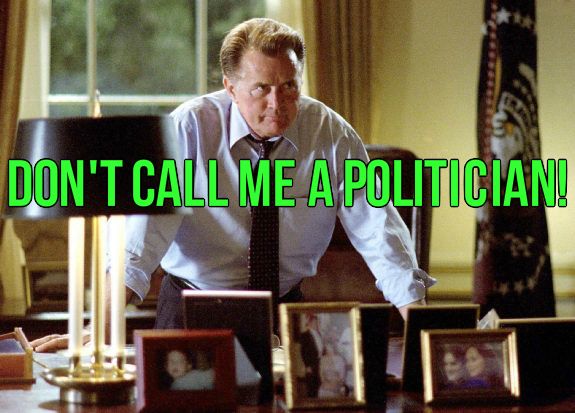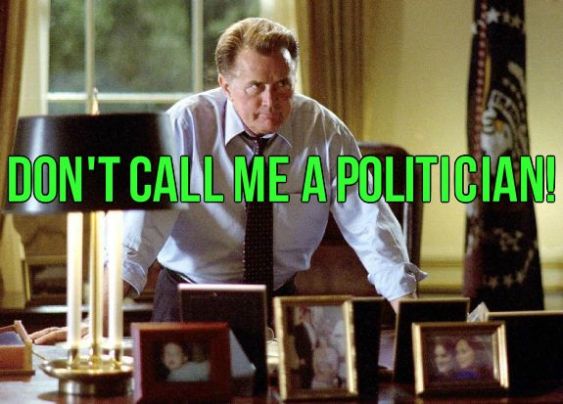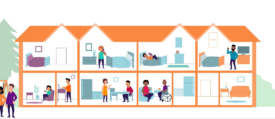As the fine folks at Public Works remind us, how we talk about public officials matters. It’s easy to default to bad habits. We all do it. And, all too often there are reasons to be frustrated with our representatives in government. But those habits (yes, I’m talking about the slamming, badmouthing, demonizing, name calling, grumbling…) trigger deeply entrenched, negative frames about government.
We have a lot of work to do reminding Americans that government is our best tool for getting important work done together as communities. Research commissioned by Public Works has shown that what comes to mind when Americans think about government is politics and politicians rather than the actual work of government. When we think of politicians, we think of bickering, corruption by corporate money, and self-interest.
You can see why it’s counterproductive to join in the politician bashing. In the end, it not only further erodes faith in government, it ignores the good work of all the upstanding electeds AND sets ridiculously low expectations for those whose job it is to represent us.
It’s no wonder that so many Americans simply check out.
As Jon Grinspan wrote in a NYT op-ed recently, the “‘throw the bums out’ mentality … let[s] the public off the hook” when it comes to actually evaluating any particular politician’s performance (and, sometimes, yes, voting them out of office.) Grinspan reminds us that these negative frames not only offer an excuse to retreat from public affairs altogether, making reform harder and undercutting democratic participation, but also create a political context that “favors those who would like to drown government in a bathtub.”
So, how can we talk about our political representatives in more productive ways? Public Works offers some rules to live by.
Talking About Our Representatives
Positive job descriptions: Stewards, managers, planners, problem-solvers, consensus-builders or our voice in the capitol. These give us real yardsticks for performance and reinforces what our government is for.
Give frustration a positive direction: Steer frustration and apathy toward participation. Emphasize that “our choice,” “our community,” “voting is our chance to say if our representatives are doing the job we gave them.”
Remember powerful little “reframes”: Avoid: Us and them language; lumping all politicians together (even the “other side”); stereotypes; and squabbles. Instead of politicians—our representatives. Focus on shared values and real people with a job to do. Talk about government as our tool for getting things done together.










Weezy
These “flashcard” ideas leave me scratching my head for how I should talk about the job the Sound Transit boardmembers are doing.
That board is controlled by political appointees, not “electeds”. They are entirely unaccountable, so “participation” by the public is impossible (people here can not control who sits on 15 of those 18 seats by ANY political means). They certainly are not “our representatives” — we had zero say in their appointments.
All levity aside, and more to the point: Sound Transit’s board structure is unconstitutional. The Fourteenth Amendment prohibits states from giving appointive-board public entities broad legislative powers. Sound Transit is an anathema to the core American constitutional principle of our laws being established by representative democracies. Sound Transit IS an oligarchy, and its structure violates longstanding US Supreme Court precedent.
Any lawyers read “Sightline”? Let’s discuss that issue. It transcends the subject of this “flashcard”, but that’s ok. If you want to frame government officials and municipalities in a good light you only can do so within the context of legal limits. Other forms of government — including oligarchies — deserve nothing but condemnation and certainly shouldn’t be “spun” in a positive light.
Merritt Scott (Rusty) Miller
Anna, this has been our mantra for years and I totally agree. I am definitely sharing this with our own readers. Thank you once again, for an outstanding contribution to a safer and saner world. Rusty Miller, editor, The Northstar Journal https://nsjour.wordpress.com/